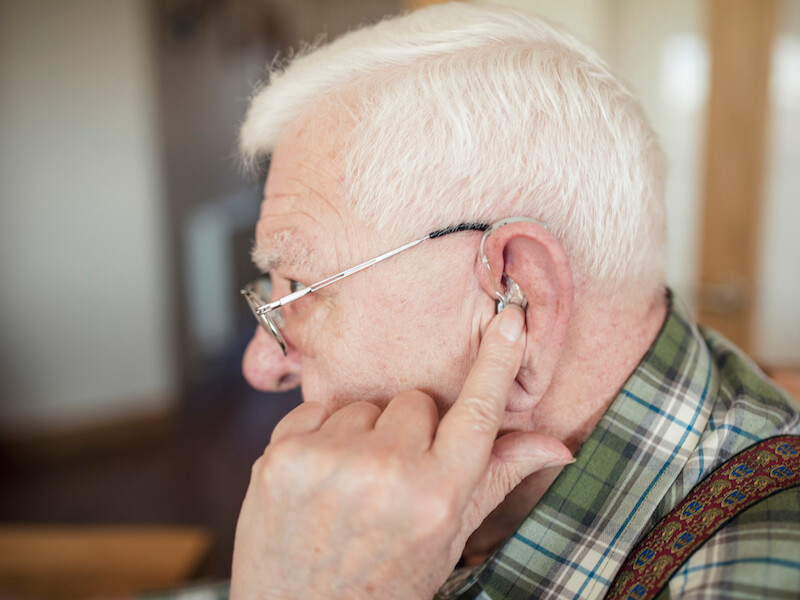
Do you feel as if your hearing aid batteries won’t keep a charge as long as they should? The reasons for this are sometimes unexpected. What is the average period of time that your hearing aid batteries should stay charged? The ordinary hearing aid battery lasts anywhere from 3 to 7 days. That range is pretty wide. So wide, in fact, that it’s unpredictable and puts you in a challenging predicament. You may be on day 4 at the grocery store when out of the blue, things go quiet and you’re unable to hear the cashier. Or perhaps on day 5, you’re having an enjoyable conversation with friends when you suddenly feel really alone because you can’t participate because you can’t hear. Sometimes the batteries don’t even make that 3 day mark. Like when you’re watching TV on day 2 and all of a sudden you can’t hear the show your watching. It isn’t just annoying. You just can’t tell how much battery power you have left in your hearing aids and it’s causing you to miss out on life. If your hearing aid batteries are draining too quickly, there are several likely culprits.
A Battery Can be Drained by Moisture
There aren’t many species that release moisture through their skin but humans do. We do it to cool off. It’s the body’s way of ridding the blood of sodium and toxins. In addition, you may live in a humid or rainy climate where things get even more moist. The air vent in your hearing aid can get clogged by this additional moisture and it will be less efficient. Moisture can also mix with the chemicals of the battery causing it to deplete faster. Here are some steps you can take to avoid moisture-caused battery drain:
- A dehumidifier for your hearing aid is recommended
- if your storing them for a number of days or more, remove the batteries
- When you store your hearing aids, open the battery door
- Don’t keep your hearing aids in the bathroom, kitchen or other damp environments
Advanced Hearing Aid Functions Can Deplete Batteries
Modern digital hearing aids help people hear a lot better than ones that you could get just ten years ago. But these extra features can cause batteries to run down faster if you’re not paying attention. You can still use your favorite features. But remember, you will have to change the battery sooner if you are streaming music from your phone all day. Your battery can be depleted by any of the advanced features, like Bluetooth, multichannel, noise cancellation, and tinnitus relief.
Batteries Can be Impacted by Altitude Changes
Moving from a low to high altitude can sap your batteries, especially if they’re on their older. Take some spare batteries if you are going on a plane or high up into the mountains.
Are The Batteries Really Low?
Some hearing aids tell you when the battery is low. Generally speaking, these alerts are giving you a “heads up”. It doesn’t mean you have a depleted battery. Moreover, sometimes an environmental change in altitude or humidity briefly causes the charge to drop and the low battery alarm gets activated. Take the hearing aids out and reset them to end the alarm. You may be able to get a few more hours or even days out of that battery.
Improper Handling of Batteries
Wait until you’re ready to use your hearing aid to pull the tab from the battery. Steer clear of getting skin oil and dirt on your hearing aid by cleansing your hands before touching them. Hearing aid batteries should not be frozen. It doesn’t lengthen their life as it might with other types of batteries. Hearing aid batteries may lose battery power quicker if you make these basic handling errors.
Getting a Year’s Supply of Batteries Isn’t a Good Plan
Buying in bulk is often a smart money decision when you can afford to do it. But the last few batteries in the pack most likely won’t have full power. Unless you’re fine with wasting a few, try to stick to a six month supply.
Purchasing Hearing Aid Batteries on The Internet
It’s not a general critique of purchasing stuff online. There are some pretty good deals out in cyberspace. But some batteries that can be found on the internet are being sold by less honest individuals and are near their expiration date. They might even be beyond their expiration date. So you need to be careful.
Both alkaline (AA, AAA, etc.) and zinc hearing aid batteries have an expiration date. If you were going to buy milk, you would check the expiration date. You need to do that with batteries too. If you want to get the most out of your pack, be sure the date is well in the future. If the website doesn’t mention an expiration date, message the vendor, or buy batteries directly from us. Only purchase batteries from trusted sources.
Current Hearing Aids Are Rechargeable
There are several reasons that hearing batteries may drain rapidly. But by taking little precautions you can get more life from each battery. You might also consider rechargeable hearing aids if you’re going to buy a new set. If you charge them while you sleep, you get a full day of power the next day. And you only have to change them every few years.